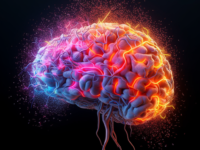Many Northeastern students are disappointed in the outcome of the 2025 men’s Beanpot, and it is easy for students to blame the team’s performance. However, there is more to sports than what the average person thinks. The mind and the body work simultaneously during sports, playing essential roles in an athlete’s performance, health, and recovery. While it’s easy to focus on physical training, building strength, speed, and endurance, the mental side of sports is just as important. Understanding how the mind and body collaborate can shed light on how athletes push their limits to perform at high levels.
The brain plays a critical role in controlling the body during sports by processing sensory input while coordinating motor functions. This process is called motor learning, and it involves the brain improving its ability to coordinate motor functions through repeated practice. This explains why athletes undergo long hours of training. Eventually, these repeated actions strengthen neural pathways, allowing athletes to move more efficiently. Consistent exercise can improve brain functions like memory, attention, and decision-making, all of which are crucial for sports performance.
Athletes are also met with extremely stressful circumstances, whether it is a penalty kick in the final minutes of a game or trying to finish a race despite exhaustion. In these moments, mental toughness is extremely important. Mental toughness is the ability to stay focused, confident, and resilient regardless of the situation. Athletes often use cognitive techniques like visualization (imagining yourself succeeding) and positive talk (encouraging yourself mentally) to boost confidence and improve performance. Many studies have found that athletes who train their minds along with their bodies can handle stressful situations and perform well.
When it comes to injuries, athletes have to recover mentally just as much as they do physically. Maureen Weiss, a kinesiology professor at the University of Virginia, has found that athletes who maintain a positive mindset and stay mentally engaged during rehab tend to recover faster. Surprisingly, visualization techniques where athletes imagine themselves healing and performing can speed up recovery. In contrast, stress and negative emotions can slow down the healing process.
Success in sports is not just about physical strength but also about mental resilience. The ability to push through fatigue, stay focused under pressure, and stay confident during stressful game situations is what separates good athletes from great ones. While Northeastern’s loss to the Beanpot this year is disappointing, it presents an opportunity for growth. By prioritizing mental strength with physical training, athletes can build the mindset that is needed to overcome adversity and improve their performance. With proper mental preparation, our men’s hockey team can turn this loss into motivation to come back stronger next year.



